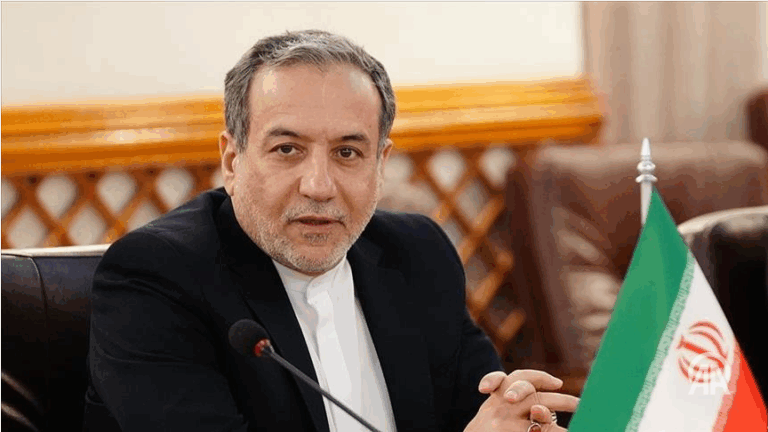Iran Demands End to U.S. Threats Before Resuming Nuclear Talks
Foreign Minister Abbas Araghchi says Tehran will not return to negotiations with Washington unless military threats stop, reaffirming Iran’s right to peaceful nuclear development and framing diplomacy as a matter of mutual respect—not coercion.

Iranian Foreign Minister Abbas Araghchi addresses the press at UN headquarters in September 2024. Photo: @anadoluagency
July 1, 2025 Hour: 7:05 am
Iran has declared that it will not resume nuclear negotiations with the United States unless Washington halts all military threats, insisting that constructive diplomacy must be based on mutual respect. The statement comes amid renewed speculation over possible talks following a fragile ceasefire between Iran and Israel.
RELATED:
Trump Eases Sanctions on Syria but Maintains Pressure on Assad and Armed Groups
Iran has declared that it will not resume nuclear negotiations with the United States unless Washington halts all military threats, insisting that constructive diplomacy must be based on mutual respect. The statement comes amid renewed speculation over possible talks following a fragile ceasefire between Iran and Israel.
Iranian Foreign Minister Abbas Araghchi made it clear that no talks with the U.S. will move forward under pressure. “To decide whether to resume talks, we must first ensure that Washington will not again exploit the talks for military aggression,” he told CBS News.
His remarks respond to growing reports of a potential reopening of nuclear dialogue, particularly after Israel’s recent military campaign against Iran ended in a declared truce. Araghchi emphasized that while Iran remains open to diplomatic solutions, dialogue must not be manipulated to justify threats or attacks. “The doors of diplomacy will never be closed,” he stated.
The minister strongly defended Iran’s nuclear enrichment program, describing it as a peaceful, science-driven endeavor and a symbol of national resilience. “Enrichment is an advanced, science-based industry. If this industry is damaged or destroyed, we can quickly repair the damage and overcome the setbacks to make progress in this industry again. Enrichment technology and knowledge cannot be destroyed by bombing,” he said.
He further underscored the strategic and symbolic significance of the nuclear program. “Our peaceful nuclear program has become a source of national pride and dignity,” Araghchi noted.
Drawing from Iran’s wartime experience, particularly the recent 12-day conflict with Israel, the foreign minister stressed that the country will not yield under foreign pressure. “During the war, we demonstrated our strength and will to defend ourselves, and we will continue to do so in the event of any aggression,” he asserted.
In a related statement, Iran’s Deputy Foreign Minister for Political Affairs, Majid Takht-Ravanchi, dismissed reports about an imminent round of indirect talks with the U.S. “No date has been set,” he said, calling the media speculation “baseless.”
Just days earlier, Araghchi acknowledged that returning to negotiations is under consideration but would depend on a thorough assessment of national interests. “Talks are neither sacred nor taboo. They are a process to be evaluated through cost-benefit analysis and aligned with higher national interests,” he explained.
He also made clear that any renewed talks would require a redefined structure and scope. “The circumstances have completely changed,” he said, in reference to shifting regional dynamics and Iran’s strategic calculations.
Past nuclear negotiations between Iran and world powers, including the U.S., centered around the 2015 Joint Comprehensive Plan of Action (JCPOA). The agreement unraveled after the Trump administration withdrew in 2018 and imposed renewed sanctions—leading to years of diplomatic stalemate.
In contrast, the U.S. State Department recently argued that the current climate, shaped by the Iran-Israel ceasefire, is conducive to reviving the nuclear deal. However, Tehran maintains that no meaningful talks can take place as long as threats and coercive tactics remain on the table.
As Washington seeks to reengage diplomatically following recent regional escalation, Iran insists that any future dialogue must be grounded in sovereign equality. Without the removal of threats, Tehran signals that a return to the negotiating table will remain out of reach.
Author: MK
Source: Al Mayadeen

